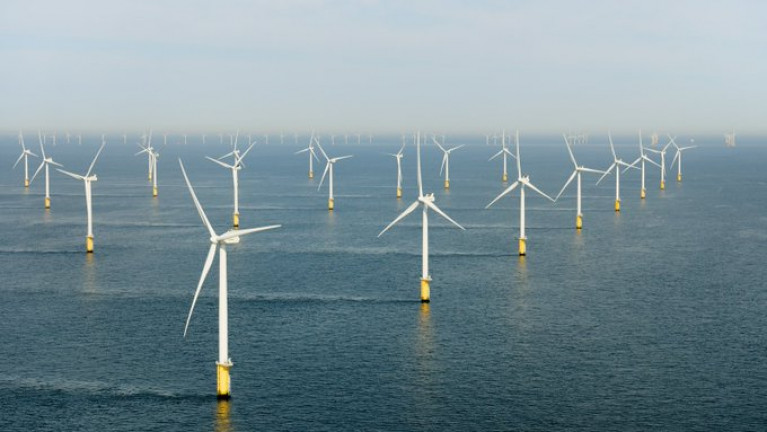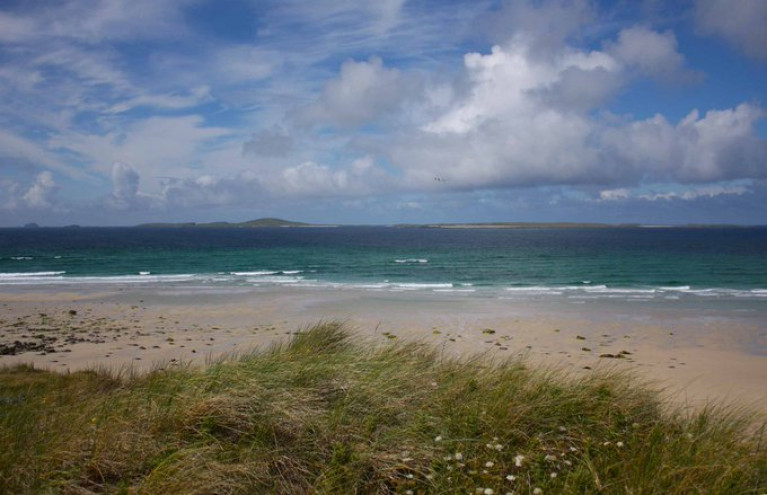Displaying items by tag: Maritime Planning
"No Hierarchy of Access" to Ireland's Sea Areas - Head of MARA
There will be “no hierarchy” of access to Ireland’s sea areas under its new maritime licensing system, the head of the new Maritime Area Regulatory Authority (MARA) has said.
MARA chief executive officer Laura Brien was speaking at the third annual seafarers’ conference hosted by the National Maritime College of Ireland in Limerick.
Brien also said that other European countries would “kill to have the space” that Ireland enjoys around its coastline.
She was responding to concerns about “spatial squeeze” raised at the conference, held in Limerick on the eve of the Skipper Expo.
Brien said that MARA’s remit was not just about offshore renewable energy (ORE), and licensing it has to approve extends from telecom cables to coastal erosion work to port development.
While there were also concerns that Ireland was lagging behind other countries in ORE development, “the upside to Ireland being late to the party is that…we’ve an awful lot of people to learn from”, including Scotland.
Asked to define "what success would look like" for MARA in ten years' time – a theme of the panel discussion she was participating in – Brien said that she hoped the opportunity would be taken early on to monitor the impact of offshore wind.
“We don’t know about a lot of the impacts of ORE..and we have the opportunity to put in place monitoring of the impact, so that when we get to 2034 we have ten years of data which would provide a solid evidence base for consenting," she said.
Capt Robert McCabe, chair of the national seafood/ORE working group, said that there were many challenges but progress was being made, and all involved were “committed to trying to find resolutions”.
Among issues being discussed was the need for a data hub, as in a one-stop shop for information, while evidence of activity by inshore vessels was also very important in making a case for impact of ORE.
A Govenment maritime planning regime is being announced, which will enable the development of offshore wind farms.
Offshore wind farms are needed if Ireland is to achieve its climate targets and reduce dependence on imported gas and oil.
The Government has pointed to renewable energy as a way to increase energy security and its climate action plan set a target of at least 5GW of power from offshore wind farms by 2030 - greater than Ireland's current total wind capacity.
Those wind farms will need planning permission and the first phase of that will be to get a Marine Area Consent.
There are seven proposed wind farms with a combined capacity of around 3GW in the first batch to be considered. Six are off the east coast and one is off the coast of Conamara (Connemara).
Minister for the Environment, Climate and Communications Eamon Ryan will issue the consents, which are expected to happen in the second half of this year.
The Maritime Area Planning Agency (MARA) as Afloat reported last year, should be established by early next year when it will take responsibility for the area.
See also related launch of Maritime Planning Bill by the Taoiseach at Dun Laoghaire Harbour last year at the Irish Lights head quarters.
More available on the new agency from RTE News.
The headquarters for the new national maritime body, MARA, Afloat adds is to be based out of a new re-development at Trinity Wharf on Wexford's southern quays.
Maritime Area Planning Bill 2021 Published Today (16 August)
The Maritime Area Planning Bill 2021 and accompanying Explanatory Memorandum have been published today by the Department of Housing, Local Government and Heritage.
The publication was approved at Cabinet on 29th June 2021 and confirmed by An Taoiseach Michéal Martin TD on 1st July 2021, alongside Ministers Darragh O’Brien TD, Eamon Ryan TD and Peter Burke TD when they launched previously at the Commissioners for Irish Lights Headquarters in Dún Laoghaire Harbour.
This legislation intends to put in place a comprehensive and coherent planning system for the entire Maritime Area. The constituent elements of this system are:
• A forward planning regime for the maritime area;
• A new streamlined development management system for the maritime area incorporating consenting for the occupation of the maritime area (Maritime Area Consents and licencing) and a new planning consenting regime (to be implemented by coastal local authorities and An Bord Pleanála);
• The establishment of a new agency, the Maritime Area Regulatory Authority (MARA) to manage the occupation of the maritime area and to enforce the provisions of the new regime.
Commenting on the Maritime Area Planning Bill, the Minister for Housing, Local Government and Heritage, Darragh O’Brien TD, said: “My Department is leading an extensive marine management reform programme, the likes of which the State has never seen. The Maritime Area Planning Bill, which Cabinet has approved, is further evidence of this Government’s intent to modernise the State’s approach to marine management. It will represent a giant leap forward towards meeting our ambitious climate action goals and targets.”
Minister for the Environment, Climate, Communications and Transport, Eamon Ryan TD, said: “Ireland’s ocean area is home to an amazing array of marine life. Our offshore wind resources represent a real opportunity for us to break free from fossil fuels and reach our ambitious climate goals. My department has been closely involved in the development of this legislation, which will create a streamlined planning and consent regime. We are determined that as we develop our resources, we do so in a way that protects and restores our marine environment and its biodiversity.”































































